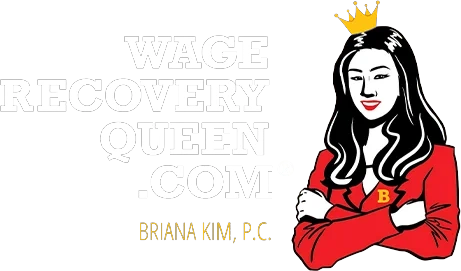Can I Sue My Employer for Firing Me Under False Accusations in California?


Termination based on unfounded claims can destroy your professional life while damaging your reputation and blocking future job opportunities. California labor laws provide strong protections for employees against wrongful termination when it stems from illegal motives or contradicts public policy. This may leave you wondering, “Can I sue my employer for firing me under false accusations in California?”
Recognizing your rights and available legal actions is critical if you think you were wrongfully terminated because of unfounded accusations.
Understanding Wrongful Termination in California
The employment laws of California permit employers to fire employees for almost any reason or without a reason. However, employers cannot legally terminate employees for unlawful reasons despite California’s at-will employment policy. Employees face wrongful termination when they lose their jobs due to actions that break federal or state laws, breach employment contracts, or contradict public policy principles.
Wrongful termination covers dismissals that occur because of discriminatory practices, retaliation actions, or an employee’s refusal to engage in illegal activities.
However, firing someone for false accusations can be illegal if the termination encompasses one of the following:
- It violated public policy
- It violated an employment contract
- It violated the policies of the employer
- It violated federal or state laws regarding discrimination and retaliation
- It was a result of defamatory or malicious actions
If any of these occurred, you may have grounds for a legal claim against your employer.
Common Examples of Wrongful Terminations Based on False Allegations
You have a potential legal basis for a claim if your termination was based on false claims connected to unlawful motives or processes. Below are instances where false accusations could lead to a wrongful termination claim:
- Retaliation. Your employer accused you of misconduct after you took protected leave (FMLA/CFRA), reported workplace harassment or discrimination, or declined participation in illegal activities.
- Breach of Public Policy. Termination occurred because you exercised a legal right through actions such as jury duty attendance or wage theft reporting.
- Discrimination. Your employer fired you because of discriminatory stereotypes or bias connected to your race, gender, pregnancy status, disability, or another protected characteristic.
- Defamation. Malicious false accusations concerning serious misconduct damaged your professional standing as well as your job.
The Prevalence of Wrongful Termination
Wrongful termination, especially as a form of retaliation or discrimination, is more common than many people think. In fiscal year 2024, the EEOC documented over 88,000 discrimination charges, which represented a 9% growth from the previous year. The most common accusation in federal complaints continues to be retaliation, accounting for almost 40% of all reports.
California’s Civil Rights Department processed close to 15,000 right-to-sue requests throughout one year.
Residents who have experienced wrongful termination in California can request assistance from government bodies such as the California Civil Rights Department (CRD) or federal agencies like the U.S. Equal Employment Opportunity Commission (EEOC). The EEOC exists to process employment-related complaints.
Residents of La Mirada have access to legal assistance from both the Norwalk Courthouse and the Legal Aid Foundation of Los Angeles, since the latter provides resources and guidance related to employment law.
How Can I Prove My Termination Was Based on False Allegations?
To file a claim against your employer for wrongful termination based on false allegations, you must provide evidence of the following:
- The accusations were false. You must prove that you did not do what you are being accused of.
- The employer knew or should have reasonably known that the accusations were false. You can show that your employer acted in bad faith or did not investigate the claims thoroughly.
- You suffered harm or damages as a result. You can show evidence that you lost your job, income, benefits, and/or future opportunities because of the termination.
- The termination was unlawful. You can prove that the reason for the termination was based on discrimination, retaliation, harassment, or a violation of public policy.
In some cases, people use false allegations to cover up terminations that are really due to retaliation or discrimination. False accusations often serve as a diversionary tactic in these situations. The underlying reason for the firing could be that it violated California labor laws, which provides grounds for legal recourse.
FAQs
Can You File a Claim for Being Fired Over False Accusations?
Yes, you can file a claim for being fired over false allegations if it violates California labor laws. Wrongful termination claims might exist if your firing resulted from discrimination, retaliation, public policy violation, or defamation. You should get an employment lawyer to determine if false allegations resulted in illegal termination or dismissal under legal protection.
How Much Can You Get for a Wrongful Termination Claim in California?
How much you can get for a wrongful termination claim in California will depend on a number of factors, such as the amount of wages lost, reputational damage, and emotional distress. Compensation for future lost earnings and attorney fees may be included in some cases. Every employment case requires individual analysis since an experienced employment lawyer can deliver better estimates when they know the specific details.
Can You Press Charges Against Someone for Making False Accusations in California?
You have the right to press charges against someone for intentionally making false accusations in California that harm your reputation or financial well-being. Criminal prosecution for false statements happens only in special cases, while civil courts manage the majority of such cases. Seek legal advice to find out if your case is eligible for legal proceedings.
What Do I Do When an Employer Makes False Accusations?
If your employer makes false accusations, swiftly document all details regarding what was said and when it occurred. Send a written request for clarification about the accusation while collecting any evidence that shows the claim to be false. Avoid signing any documents without legal advice. Consult an employment attorney for an evaluation of your legal options if your employer’s accusations result in disciplinary action or your termination.
Contact Briana Kim, PC, Today
Facing termination due to false accusations requires you to seek support. Briana Kim, PC, offers personalized legal support with strategies tailored to your case to defend your rights. Contact us today for a private consultation to understand your options.



